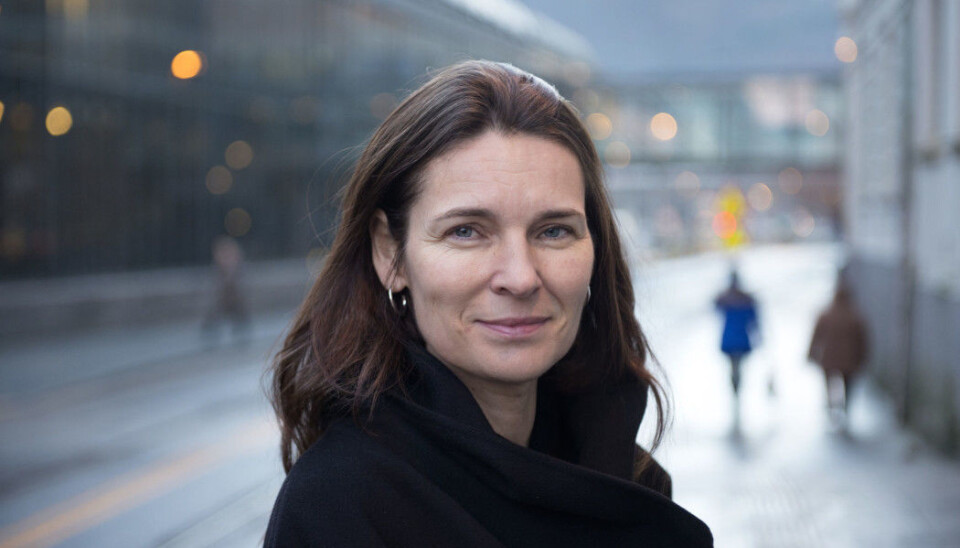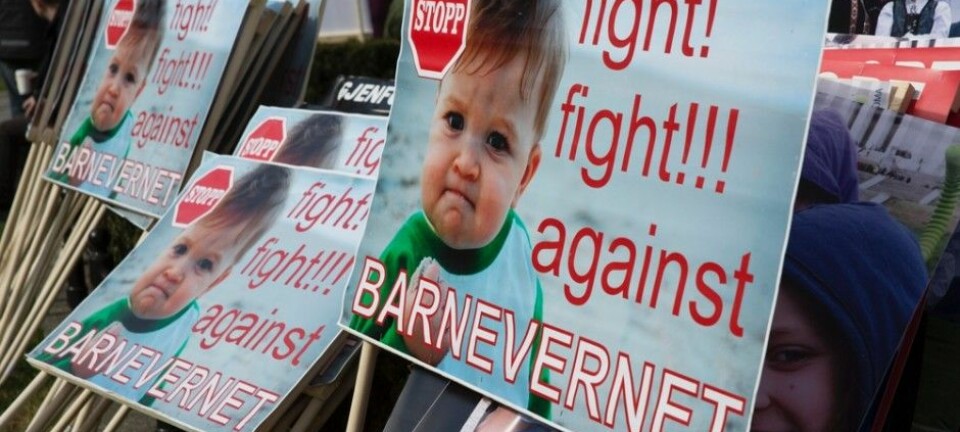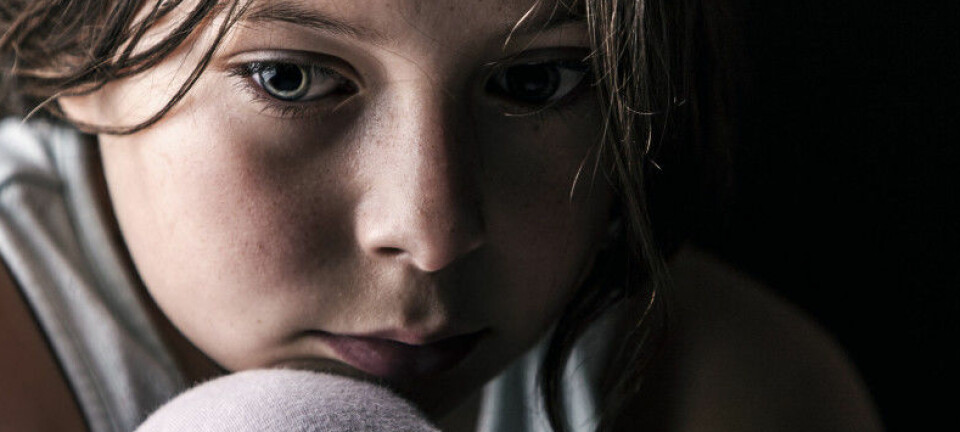
Professor compares Norwegian Child Welfare Services with other countries:
"The Norwegian system is good"
“But there are areas for improvement,” says Marit Skivenes.
Skivenes is a professor of political science at the University of Bergen (UiB). She presented new research at the seminar "Does the Child Welfare Services have an undeserved bad reputation?" at Oslo Metropolitan University (OsloMet) in mid-March.
Norwegian Child Welfare Services have been criticized for taking children away from their parents too frequently.
But we’re not the worst in the class here, say researchers at the Centre for Research on Discretion and Paternalism at UiB, which Skivenes heads.
Several countries are at the same level as Norway, the researchers say.
At the top of the Nordic countries are Finland and Sweden, while many of the Eastern European countries are even higher.
Good processes for transferring care
In one of their studies, the researchers looked at child welfare services when it came to transferring care in eight different countries: Norway, Finland, Ireland, England, Switzerland, Sweden, Germany and the USA.
“This study shows us that the Norwegian system has a good decision-making process compared to other countries,” Skivenes said.
Norway’s decisions are based on thorough information and include all stakeholders. Parents are given legal aid and they have the opportunity to present their arguments. There’s also time for reflection and questions.
There is also openness in the form of written statements about the decisions, and some percentage of the decisions are publicly available in an anonymous form, the researchers say.
Few are adopted in Norway
The researchers have also studied adoptions in several European countries: Norway, Finland, Austria, Germany, Spain, Ireland and Estonia.
In Norway, children who are placed in long-term care are most often placed in foster homes. Foster parents are only occasionally given the opportunity to adopt these children. Only 50 children are adopted under the Child Welfare Act each year.
Norway is still doing well here, compared to the other countries, the research shows.
Norway does have legal proceedings through county councils and the right to a full appeal to district courts. Some of the decisions are published in Lovdata, a foundation that publishes judicial information from Norway, and thus are publicly available.
Enormously closed processes
But the researchers' conclusion is nonetheless disappointing.
“These are enormously closed decision-making processes. This applies to all the countries, including Norway,” says Skivenes.
There is a lack of information about the cases and a lack of openness. The systems operate largely in isolation. Only a few external parties have access to and knowledge of what happens internally in the process.
The researchers say it’s worrisome that there is so little ability for external parties to scrutinize the process. That means it’s not possible to say anything about the quality of the decisions being made, the researchers said.
Why are they so angry with us?
Although researchers find that Norway comes out at the top of the class in many areas when it comes to child welfare, the criticism of Norwegian child welfare services can be massive at times, both inside the country and from other countries, especially countries in Eastern Europe.
Parents are quoted in Polish media about how the Norwegian Child Welfare Services "steals" children.
Researcher Jørn Holm-Hansen from OsloMet attended the seminar and talked about the resistance in eastern Europe to the Norwegian Child Welfare Services.
Holm-Hansen doesn’t specifically work with child welfare, but does study political developments in countries such as Russia and Poland.
He believes that the fierce protests against the Norwegian Child Welfare Services in countries like Poland are not about how the Norwegian system works, as such.
“This antagonism is part of a national conservative and right-wing populist mobilization,” he says.
A culture war
It’s a culture war, Holm-Hansen says.
These groups frame child welfare as a narrative of moral decay. About the dissolution of norms. The weakened position of the family. They experience this as pressure coming from outside, from a decaying Europe.
The Norwegian Child Welfare Services is just one of many themes used by national conservatives in their stories, he says.
“It’s not the Norwegian Child Welfare Services itself, but the principle that children have individual rights that they believe is wrong. They are strong supporters of a hierarchy where God is at the top and the authorities just below. Then comes the man, then the woman and then the child — whose moral development is not complete and who needs discipline,” he said.
These groups believe that when a child is given individual rights, it threatens the social order, he says.
Be self-critical
However, Holm-Hansen believes that we must take the experiences of migrant workers with the utmost seriousness.
“Many migrant workers live in poor living conditions. They have extreme job insecurity and miserable living conditions. The question is whether we, in our eagerness to psychologize, have paid enough attention to the real physical conditions under which they live,” he said.
Holm-Hansen's view is that the Norwegian Child Welfare Services must be tough in the culture war with national conservative right-wing populists.
He believes that the child welfare system must not be intimidated. But there is reason to be self-critical when it comes to how the Norwegian Child Welfare Services works with Polish labour migrants, he says.
“These are people who often have problems that can be helped by using the right approach,” he says.
Surprisingly similar attitudes
In an ongoing study, Skivenes and her colleagues looked at the attitudes of a representative sample from the populations of different countries.
They posed the same question to people in Poland, Romania, England and Norway.
“A child's well-being suffers from a parent’s problems with alcohol. Is it acceptable in such a situation for the authorities to move the child from the parents’ care to other caregivers because it is in the best interests of the child? ”
“We received surprisingly similar values in the four countries. In Norway, 93 per cent agreed. In England, 87 per cent agreed, while that number was 86 per cent in Romania and 79 per cent in Poland,” Skivenes said.
Translated by: Nancy Bazilchuk
———
Read the Norwegian version of this article on forskning.no

































